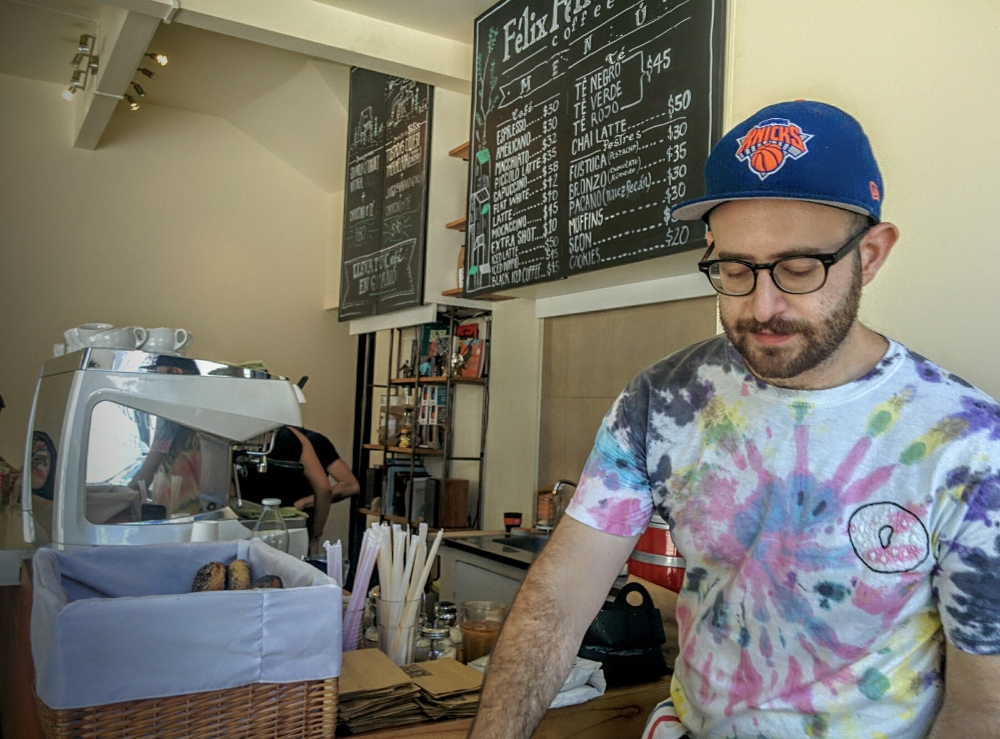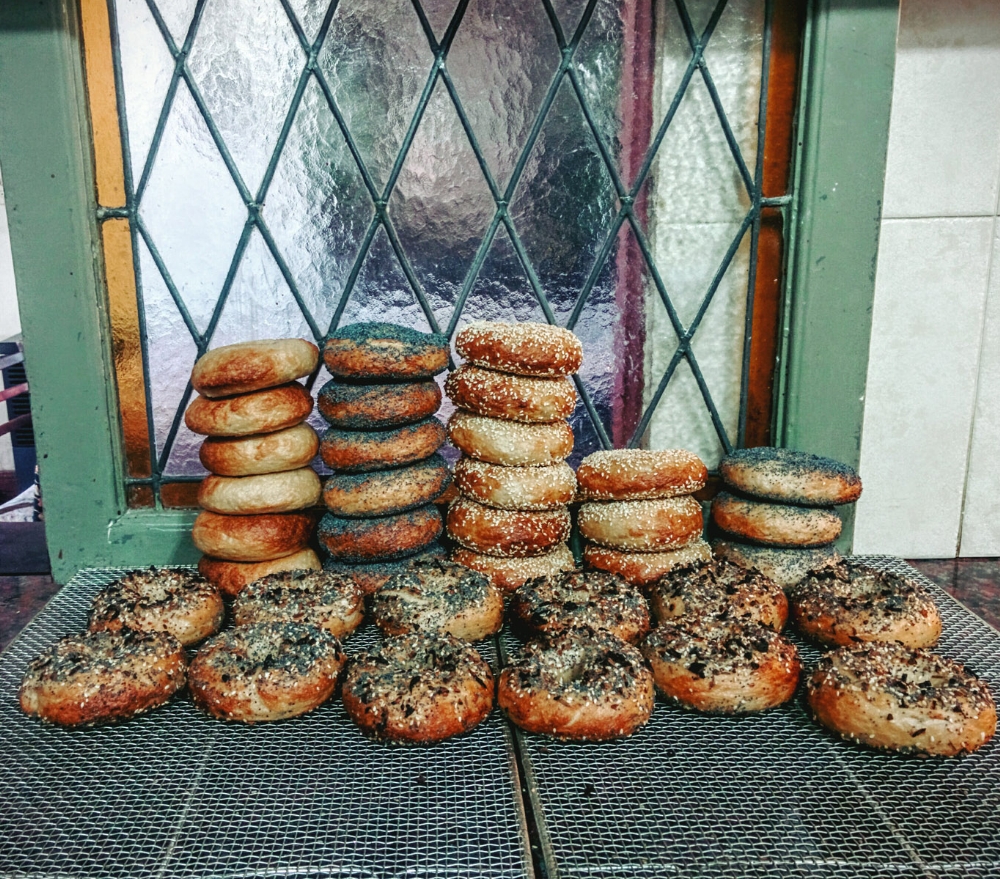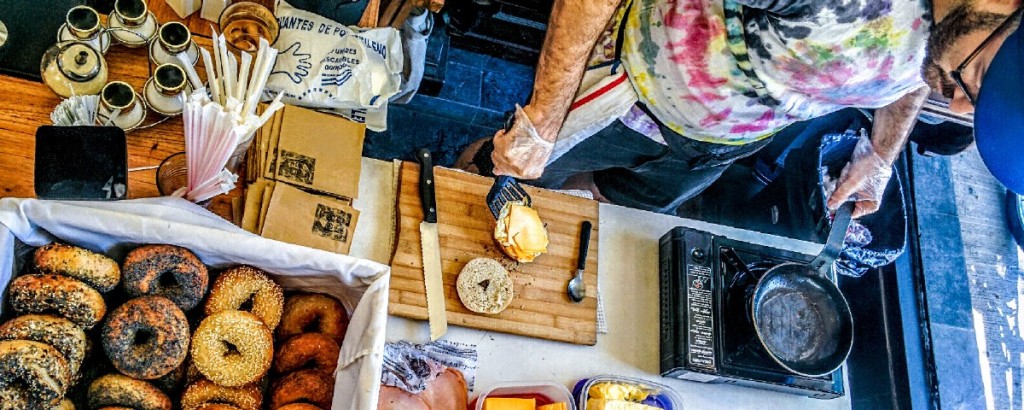In a city where food is always a sit-down affair and fish rarely makes the menu, one American is serving up a slice of New York in Buenos Aires. Jacob Eichenbaum-Pikser, 27, a former geophysics student and Manhattan transplant, has introduced handmade bagels to the capital and can’t bake them fast enough to meet demand.
Argentina is not a breakfast and brunch country. Porteños, as Buenos Aires locals are known, prefer soft white bread and tend to consume hunks of beef late in the day. By all accounts, bagels and lox would be the last thing to take off.
“Because for a lot of people, this is their first bagel. I want this to be as authentic as it can be,” said Jacob (or “Sheikob,” as Porteños call him) as he flipped half a dozen bobbing rings of dough in a pot of boiling water. He’s worked assiduously to replicate New York-style bagels and American-style cream cheese, and sells them out of a bicycle cart at Buenos Aires cafes.

“Bagels have become trendy, like all things American, among Argentinians,” he said. A returnee from New York opened a knock-off Burger Joint in the trendy Palermo Soho neighborhood, setting off a craze for hamburguesas. Now bagels and other American baked goods—muffins and scones and chocolate chip cookies—proliferate on cafe menus.
Eastern European Jews introduced the bagel to North America, but their cousins who immigrated to Argentina didn’t bring the now-quintessentially New York delicacy with them. Much of the city’s cuisine reflects the flood of Italian and French immigrants who populated Buenos Aires in the late 19th century.
What passes for a bagel in Argentina is essentially ring-shaped bread: spongy and flavorless, like something out of the freezer aisle. Traditional handmade New York bagels, by contrast, are formed from pre-fermented dough and left to rise in the refrigerator overnight. They’re briefly boiled, then baked, resulting in a crunchy, paper-thin outer crust that conceals a soft but chewy interior.
Jacob never planned to be a full-time baker; before moving to Argentina two years ago, he’d never baked a bagel. He studied geophysics at Brown and Columbia, but “wasn’t singularly driven” about carbon sequestration in minerals, he recalled, “in the way that one has to be.”
He changed course and flew down to Buenos Aires, where he had studied abroad during junior year. For a short while he worked as a private SAT tutor, which was profitable but not engaging.
He encountered “this proactive attitude” among his colleagues in Buenos Aires, he said, “a really strong valuing of pursuing your interests in life.”
Argentinian food can get monotonous, he said. Soon enough he started longing for the Jewish comfort food of home, particularly the humble bagel.

Jacob never planned to be a full-time baker; before moving to Argentina two years ago, he’d never baked a bagel. He studied geophysics at Brown and Columbia, but “wasn’t singularly driven” about carbon sequestration in minerals, he recalled, “in the way that one has to be.”
He changed course and flew down to Buenos Aires, where he had studied abroad during junior year. For a short while he worked as a private SAT tutor, which was profitable but not engaging.
He encountered “this proactive attitude” among his colleagues in Buenos Aires, he said, “a really strong valuing of pursuing your interests in life.”
Argentinian food can get monotonous, he said. Soon enough he started longing for the Jewish comfort food of home, particularly the humble bagel.

Leave a Reply